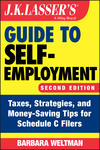Selling Your Home for Tax-Free Profit
For many people, their home is their biggest asset. Now that the real estate market has recovered in most locations from its lows during the recession a decade ago, a proftable home sale may represent a homeowner’s greatest tax gain ever. According to the National Association of Realtors, home prices in 2019 are expected to increase by about 3.1%, and total number of sales to rise by 1%. If you are going to sell your home in 2019 or plan to do so in the coming years, you may have a profit. The good news: you may be able to avoid some or all of the tax on your profit.
Increase your basis to minimize gain
Gain on the sale of your home is essentially determined by subtracting its basis from the sales proceeds. So the greater your basis, the smaller your taxable gain.
Basis is what you paid for the home, plus any capital improvements to it. If you built an extension on the home, converted an attic to a new room, replaced appliances and carpeting, or undertook similar improvement projects, you can increase your basis by the cost of these improvements. Keep a running record of the improvements to your home. But don’t add the cost of repairs, such as fixing a leak in the roof or repainting a room.
Use the home sale exclusion
You can exclude from income up to $250,000 of gain on the sale of a principal residence ($500,000 if you are married and filed a joint return). This exclusion applies if you owned and used the home as your main home for at least two of the five years preceding the date of sale. The periods do not have to be simultaneous; you can aggregate the time you owned and used your home. The exclusion doesn’t apply, however, if you excluded gain from the sale of another home within the two-year period prior to the sale of your current home.
Take advantage of special breaks
Even if you can’t meet the basic eligibility requirements for the home sale exclusion, you may still get a break:
- If you are forced to relocate prior to two years (e.g., for work, health, or other unforeseen circumstance), you can get a partial home sale exclusion.
- If you are in the military, you get more time to be eligible for the home sale exclusion.
- If an earlier home was destroyed or condemned, you may be able to count your time there towards your current ownership and use.
- If you inherit a home (and you’re not a surviving spouse), you can’t count the decedent’s ownership and use to become eligible for the home sale exclusion. But you may not have any gain if you sell shortly after the inheritance because you enjoy a stepped-up basis (i.e., the basis in the home is its value on the date of the decedent’s death in most cases).
Avoid tax on your home during divorce
If you transfer title to your home to a spouse or ex-spouse as part of your divorce settlement, you don’t have any taxable gain from the transfer (assuming your spouse/ex-spouse is not a nonresident alien). Your spouse will have to worry about it in the future.
Conclusion
Whether you are selling to downsize, obtain a bigger home, or to relocate, be sure to consider the tax impact of your sale. You can find more information in IRS Publication 523 (https://www.irs.gov/pub/irs-pdf/p523.pdf).



